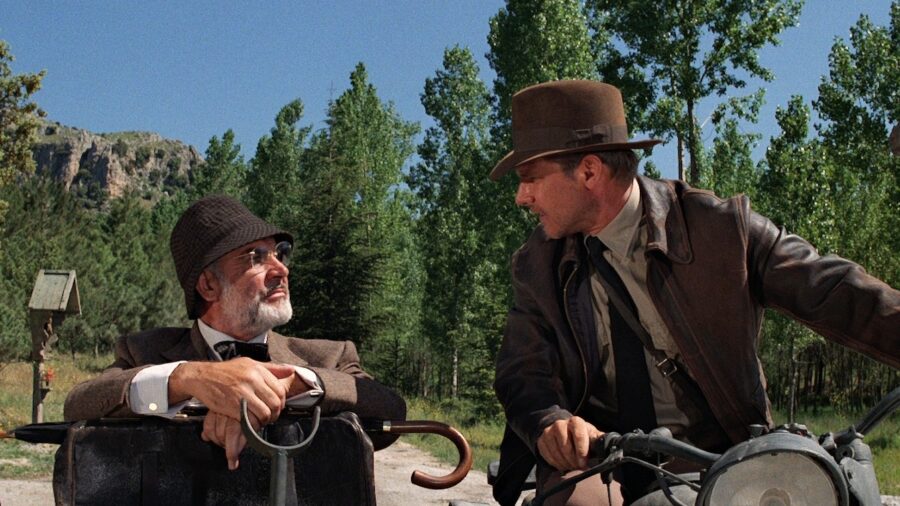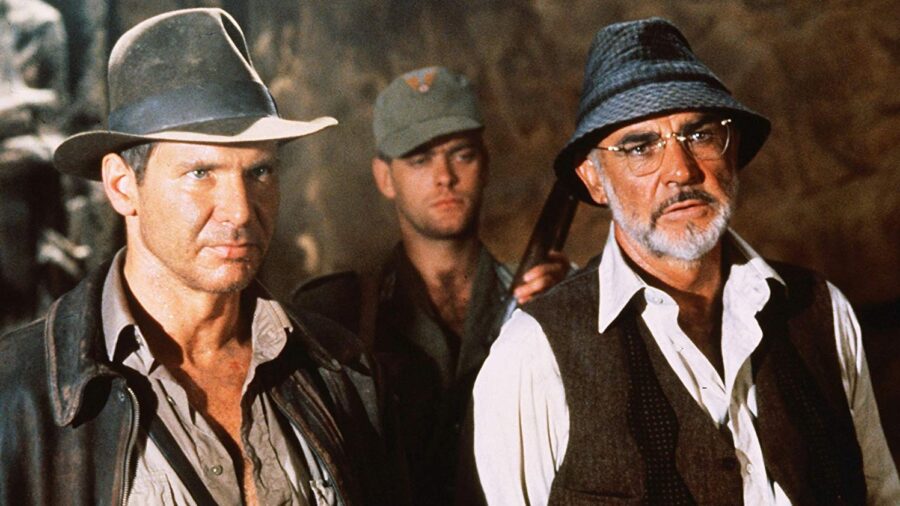Indiana Jones And The Last Crusade Deserves Way More Love Than It Gets
Indiana Jones and the Last Crusade should be rated more highly for focusing on emotional growth as much as action.

Indiana Jones is a franchise like no other, but not all of its parts are equal. While Harrison Ford, George Lucas, and Steven Spielberg managed to do what no one else ever has and resurrected their beloved boyhood movie serials in condensed and rarefied form, not every installment of the series gets the kind of love. However, it is Indiana Jones and the Last Crusade that most egregiously does not get the love it should for its actual depth of emotional maturity and growth.
Unlike any of the other movies in the franchise, The Last Crusade is a movie that allows us access to some interior sense of Indiana Jones’s life. It makes sense that Harrison Ford appears as a seasoned, fully-formed two-fisted professor in Raiders of the Lost Ark because his purpose there is essentially to be the coolest adventurer that George Lucas and Steven Spielberg could come up with. In the second movie (which is notably, a prequel), Indiana Jones is even less explored, with his sole emotional beat being his realization that “fortune and glory” are the end-all-be-all of archaeology/graverobbing.
But The Last Crusade actually gives a backstory to Indiana Jones and why he is the obsessive longer (albeit a charming one) that he is. The introduction of Dr. Henry Jones Sr. (played by Sean Connery somehow cast both against type and with it) gives Indiana a history and a clear indication of how his passion for history is both a family trait and something that has clearly caused a rift between the two men.

It also explores another, unseen character or, at least, her impact on the narrative. Indiana Jones’s late mother Anna had been briefly mentioned in Raiders of the Lost Ark, but not with any amount of significant depth. However, in The Last Crusade, it is clear that Anna was the one who held the family together and that her death (which appears to have been of illness at some point in the 1910s, though canon is a little hazy) allowed the two men to drift away from each other.
The beating heart of The Last Crusade is the relationship between the two Jones men, who are a classic case of being too similar to truly appreciate each other. Indiana Jones’s slow realization over the course of the film is that his father is a human being with his own emotions and flaws, while his father comes to see his son as something other than a disobedient student to be disciplined. It may not be especially subtle storytelling, but the warmth and humanity that both Harrison Ford and Sean Connery bring to the parts is something to behold.
It also helps that The Last Crusade has all of the virtues of Raiders of the Lost Ark and none of the flaws of Temple of Doom (an underrated movie in its own right). In the third installment of the series, Indiana Jones has just as much action (particularly a desert tank vs. horse race with truly grisly violence) as the previous movies but adds in a whole lot more humor and warmth. It also helps that this time around, Spielberg and Lucas decided to ditch the mean-spirited jokes at the expense of women and people of color, but that’s a whole discussion for another time.
In many ways, it seems that adding the man who most epitomized James Bond to the Indiana Jones equation encouraged things to get a bit lighter tonally; reportedly, Sean Connery adlibbed some scenes and shaped the character around his idea of a man with just as impressive of a history of adventures as his son, if not more. It also helps that The Last Crusade brought back supporting characters like Marcus Brody (Denholm Elliott) and Sallah (John Rhys-Davies, who will soon return for the fifth movie), creating more of a sense of a shared Indiana Jones-verse than the disconnected second movie.
But more than any other Indiana Jones movie, The Last Crusade has an actual sense of emotional growth and stakes. It is not as simple as the boys’ own adventure of Raiders of the Lost Ark or as gruesome as the exotica of Temple of Doom, but a movie that actually turns its hero into a human.












